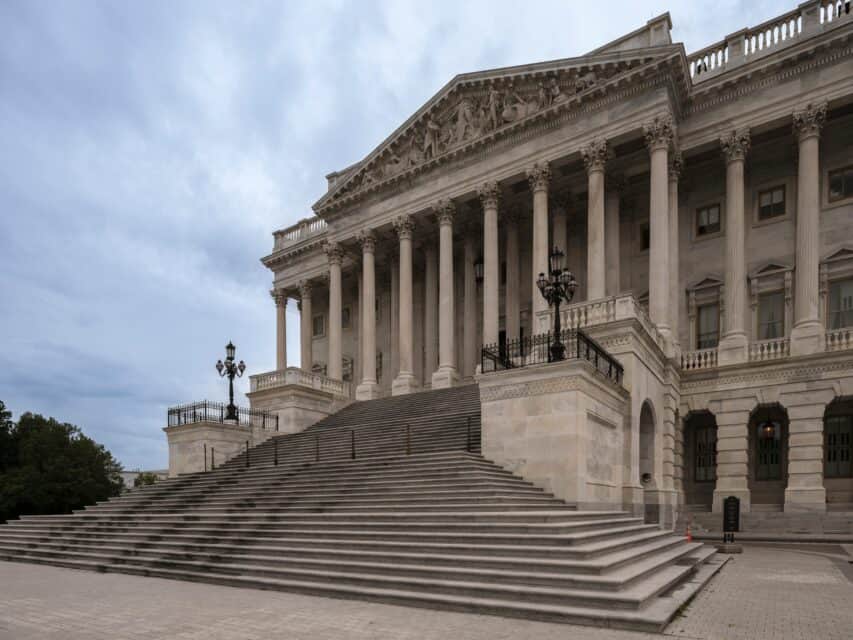Crazy for you and Too much of a good thing?, two complementary reports by the cross-party think tank Social Market Foundation, have stressed that there is a delicate but important need for discourse on reliance when it comes to how the sector approaches the funding of universities, and the public viewing of international students.
- “Work is already underway” to address diversification in recruitment notes Dr Tim Bradshaw, chief executive of the Russell Group
- SMF refers to itself as a non-partisan think tank – MPs make up some of its advisory board
“Without putting the higher education sector’s funding on a sustainable footing, efforts to address the pressures caused by the rapid increase in international student numbers risk doing more harm – to universities’ finances and to the UK’s attractiveness as a destination for study – than good,” said Zeki Dolan, author of the Too much of a good thing? report.
But Dolen noted that the over-reliance is not down just to universities’ decision making on finances – but that the government has essentially exacerbated the problem.
“Recent restrictions on international student migration have narrowly focused on reducing net migration, and government has not considered the wider implications of its actions.
“After pushing universities to become over-reliant on international student fees by freezing domestic fees, it has now pulled the rug from under the sector’s feet – with little direction on how it will compensate them in the future,” Dolen continued.
Crazy for you crafted some key takeaways from the government’s developing policy around international students and how to tackle the growth in a sustainable way.
Jonathan Thomas, who wrote the report, said one takeaway was that public concerns about international student growth can’t be ignored, as “wishing away these concerns risk missing a golden opportunity to address them” – something previously pointed out by Dundee VC international Wendy Alexander at the IHEF conference in May.
“The shift… away from policy presumption that attracting international students without limit is immune from any trade-offs and tensions… is a good thing.
“It provides the UK with an opportunity to acknowledge and address [these issues], rebuilding slipping public confidence and maintaining public consent to the UK’s continued openness to international students,” Thomas noted upon the report’s announcement.
The MAC Review, the report said, was also merited – addressing key misconceptions with new evidence and data, and highlighted “areas for focus and for improvement”. Additionally, it highlighted a problem already noted by IHEC on the lack of data in graduate outcomes, but also in what dependants are doing.
It provides the UK with an opportunity to acknowledge and address [these issues], rebuilding slipping public confidence
Jonathan Thomas, Social Market Foundation
“They are not treated as making any economic or fiscal contribution in the UK. Their contribution can therefore conveniently be ignored – which would not be the case if as should be the case the evidence of it had been collected.
“On this un-evidenced basis, policies restricting dependants is then less controversial and becomes easier to justify,” the report noted.
It also noted the pressures on accommodation that, while not the same as in Canada and Australia, are still an issue and need to be addressed quickly.
Too much of a good thing? recapped multiple issues that the sector has already been aware of – including the growth largely driven by India and Nigeria and the stagnation of numbers from the EU and China, as well as a growth in demand for one-year master’s degrees.
At the Russell Group, its chief executive Tim Bradshaw noted that the UK’s major league status as a global education destination should be recognised as a genuine success story – and he signalled a need for “more positive rhetoric” from the government.
“Work is already underway by our universities to diversify student intakes to ensure overseas recruitment is sustainable,” he flagged, “and it is vital that this is supported by stability in government policy and more positive rhetoric around UK higher education so the UK remains a leading destination for students around the world.”
While the report advocated for limiting the increase of international student numbers to “ensure sustainable growth”, it also noted that universities needed to be compensated for lost income from those students with an “increased teaching grant”.
“The government should commit to increasing the direct grant funding provided to universities to counteract the effect of the decline in the unit of resource for home students.
“At present, this amounts to around £1,150 per student.95 This grant should be increased such that it partially offsets the decline in the unit of resource for each home student since 2017,” the report explained
“With growing funding shortfalls for domestic teaching and research, international fee income is also increasingly important to the sector’s financial health. This enables universities to continue increasing the number of places for UK undergraduates and delivering crucial R&D activities,” Bradshaw also said.
Bradshaw stressed that the Russell Group is eager to work with the next government after the election on July 4, to “help develop a funding model which is fair to students, universities and taxpayers”.









